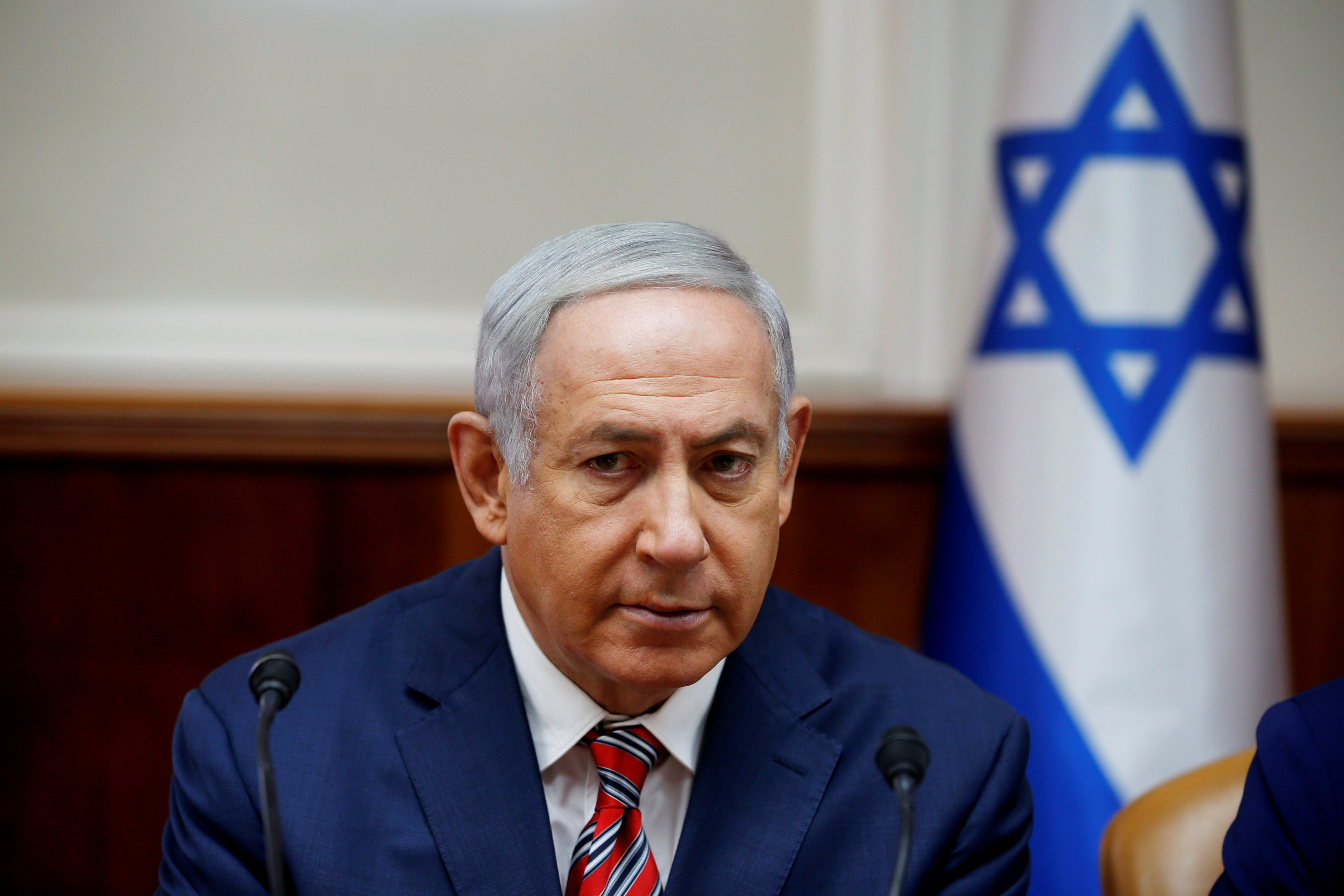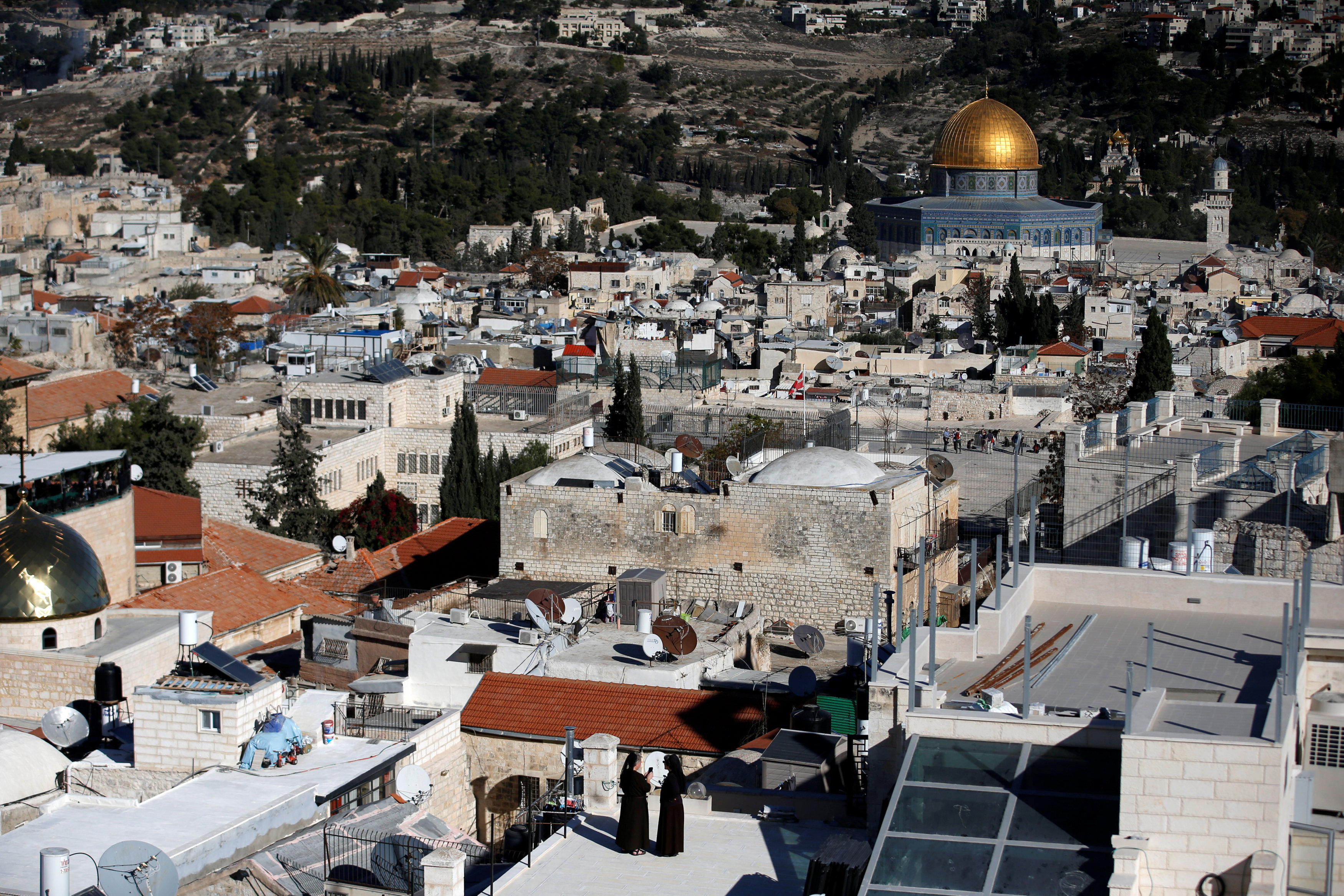
By Suleiman Al-Khalidi
AMMAN (Reuters) – The Syrian army stepped up shelling of opposition-held parts of the southwest as it mobilizes for a campaign to regain the area bordering Jordan and the Israeli-occupied Golan Heights, opposition sources said.
Violence erupted at the frontline town of Kafr Shams, near the Syrian-held Golan Heights, and further east in the town of Busra al Harir, which was struck by dozens of mortars from nearby army positions, the sources said.
Syrian state media said militants had escalated attacks on civilians in the area which is part of a “de-escalation” zone agreed by the United States and Russia last year with the aim of containing the conflict in the southwest.
An offensive in the southwest would risk a major escalation of the seven-year-old war. The area is of strategic importance to Israel, which is deeply alarmed by Iranian influence in Syria. Washington has warned it will take “firm and appropriate measures” in response to violations of the “de-escalation” deal.
U.S.-allied Jordan is increasingly worried about a spillover of violence and has been engaged in stepped up diplomatic efforts to preserve the de-escalation zone which it also helped to broker last year, a Jordanian source said.
Rebels say Iranian-backed fighters allied to President Bashar al-Assad have boosted their numbers in the area, though a commander in the regional alliance fighting in support of Assad denied Tehran-aligned forces had a big presence there.
Elite government troops known as the “Tiger” force, which have spearheaded a campaign that recaptured the Eastern Ghouta region near Damascus, have also been mobilized for the attack.
The pro-Damascus newspaper al-Watan said there were “growing indications about preparations for the start of a wide military operation to liberate” the south.
HIT AND RUN ATTACKS
Assad said earlier this month the government, at Russia’s suggestion, was seeking to strike a deal in the southwest similar to agreements that have restored its control of other areas through withdrawals of rebel forces.
But he also said there had been no results yet and blamed “Israeli and American interference”. He said the territory would be recovered by force if necessary.
One major objective for the government is recapturing the border crossing with Jordan that served before the conflict as a vital trade gateway for goods moving across the region. Its closure has hit both the Syrian and Jordanian economies hard.
Rebels say elite army troops backed by Iranian-backed local militias have been escalating hit and run attacks on their posts in a so-called “Triangle of Death”, which connects southern Damascus countryside with Deraa and Quneitra provinces.
A rebel commander said a bomb injured several fighters in Naba al Sakr town, saying it was one of a growing number of such attacks blamed on Iranian-backed militias in the area.
“They are moving more reinforcements and there have been several infiltration attempts which we have so far repelled,” said Abu Ayham, a rebel commander in the Salah al Din brigades operating in Quneitra.
Residents and opposition sources say that in the few days they saw larger movements of troops with armored vehicles and tanks along two main highways that cut through rebel areas.
The last two days have seen wider skirmishes, an air strike and rebel ambushes along two main highways being used by the army to reinforce the city of Deraa, which is split into areas controlled separately by the government and rebels.
The army and rebels have also been exchanging gun fire and shelling in a frontline in Deraa city.
Employees and hospital staff in two government hospitals in Sweida and Deraa provinces have also been put on high alert, according to a resident contacted by phone from Deraa city.
(Additional reporting by Laila Bassam in Beirut; Writing by Suleiman Al-Khalidi; Editing by Tom Perry, William Maclean)














